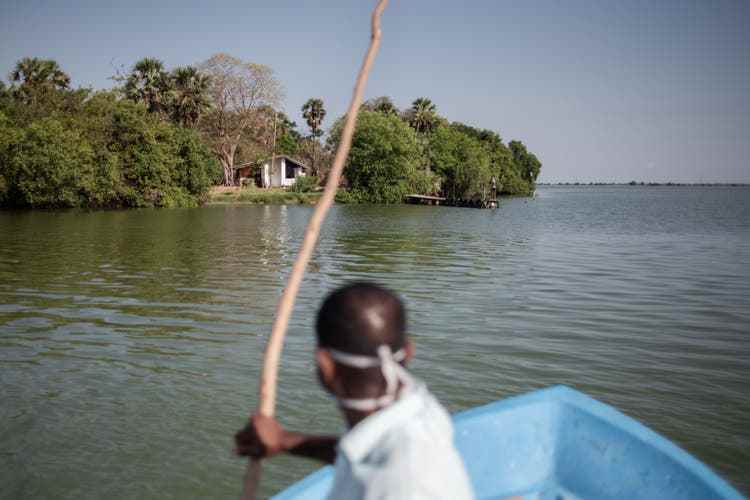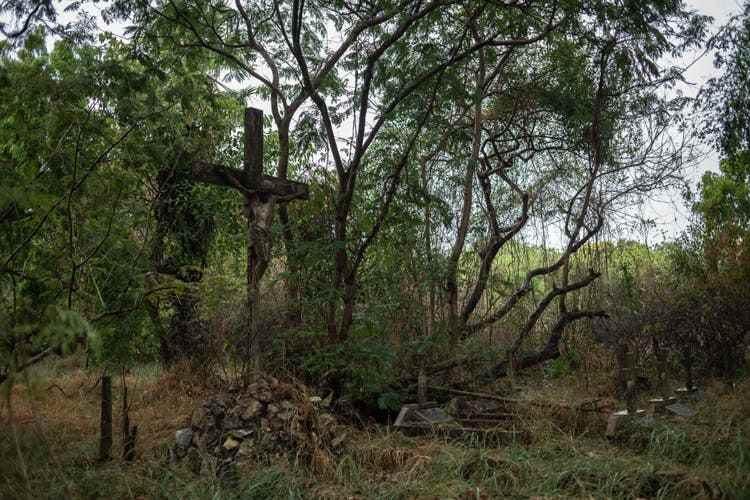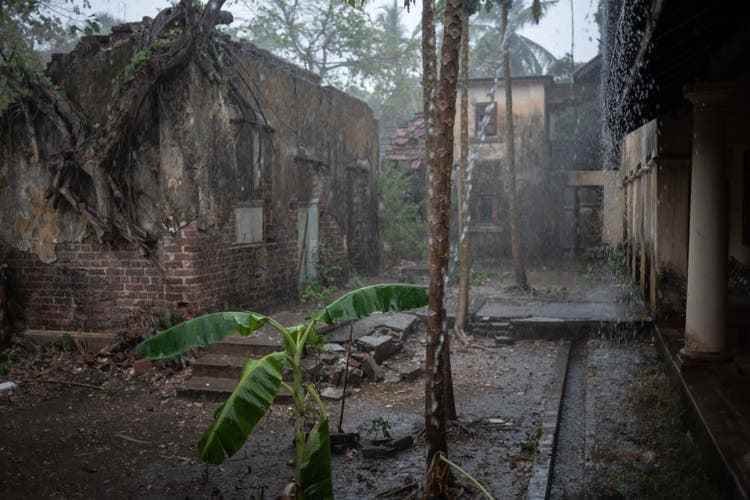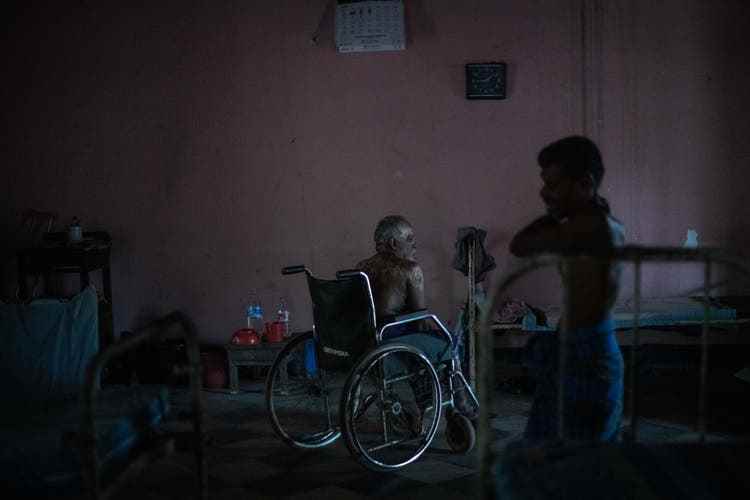South Asia correspondent Andreas Babst on the island of Mantheevu in eastern Sri Lanka.
The man on the phone was quite gruff. ‘What do you want there? Do you want to cause more problems for Sri Lanka?’ he barked into the phone. We sat in a hypothermic boardroom in a hospital in Batticaloa, a town in eastern Sri Lanka. The man on the phone was the director general of the health ministry in the capital, Colombo. And he just forbade us to do what we came to do.
I had heard about an island in eastern Sri Lanka months ago. A hundred years ago, the Sri Lankan authorities built a leper colony on the island of Mantheevu. At that time, lepers were still considered lepers, highly contagious. Like many countries, Sri Lanka locked them in colonies, where the sick lived among themselves. Leprosy has been curable since the 1980s – leprosy colonies are no longer needed. But Mantheevu is still there, and one, two or three leprosy patients are said to still be living on the island, no one knew for sure. The men have been isolated from the world for years.
It’s one of those stories that you almost can’t believe. And then I really want to write it down.

On the ferry just before the leper island of Mantheevu.
Afternoon full of emails
The director of the hospital, to which the leprosy island is administratively attached, sat with us in the hypothermic meeting room. She determines who is allowed to board the hospital ferry to the island. The headmistress doesn’t like to talk about the island. But at least she granted us an audience. However, she has bad news: her superior, the director general of the Ministry of Health, has forbidden foreign journalists to visit the island.
I live in India and as a journalist you quickly learn that it’s quite difficult to book appointments in South Asia. How naïve I was at the beginning of my time as a correspondent: I wrote e-mails all afternoon, I called press spokesmen who promised me an interview with their politician, TV star, business captain next week, for sure. And next week it was next week again – for sure. I learned to turn up unannounced. Then I sit for hours in an antechamber, drinking tea, staring at my cell phone, at my notes or at one of the curious assistants, of which there is always at least one in these antechambers. And maybe someday, maybe after lunch, just before the next important appointment is due, I’ll get an audience.
As a Swiss, you have to get used to this not registering a bit. When was the last time you showed up somewhere unannounced? Even.
But we registered in Sri Lanka. We can’t enter Leper Island without permission from the authorities, so we did everything correctly, a bit Swiss. We had been writing emails and Whatsapp messages for weeks. Our translator had sent letters to the Ministry of Health, asked the Air Force for permission to be sure, called everywhere, and we made it to this freezing boardroom. But no further.

The cemetery on Mantheevu – everything is weathered.
The hospital director gave me the number of the director general of the health ministry, who then barked at me for about two minutes. I didn’t have time to deliver my fiery monologue about journalism, my newspaper and why I and only I should be the first foreign journalist to visit Mantheevu. He just hung up.
You also learn something else quickly when you live as a journalist in South Asia: the bureaucracy is always stronger than you. The rules aren’t there because they make sense. They exist so that those who enforce them do not have to decide anything themselves. And if bureaucrats should decide something because a foreign journalist is disrupting the usual leisurely pace of things, they push the decision to the next higher authority. If you ask a bureaucrat for an interview, he will refer you to the undersecretary of the ministry, who will refer you to the secretary, who will then perhaps go to the minister’s personal assistant or even to the minister himself. Of course he will never answer.
So I sat in this hypothermic meeting room, now the hospital director had to listen to my flaming monologue. But it rolled off her indifferent smile. She left the room. The photographer and I were already discussing how else to get to the island – maybe without permission, you can’t swim, there are crocodiles in the water.

The leper station on Mantheevu in the monsoon rain.
Somehow it always works
My photographer was in the toilet, I felt a little sorry for myself when the director came back minutes later. The same indifferent smile. But this time: The general manager has changed his mind, we are now allowed to go to the island. And now she needs her meeting room again.
I learned something else in South Asia: somehow it always works. And it’s best not to ask why.
The next day we went to the island. There are two men still alive on Mantheevu: Sena and Poniah. The world has forgotten them and they await death on a deserted island. They cannot talk to each other because they do not speak the same language. All this sounds so adventurous, so absurd, so sad, as if I had stumbled into a Christian Kracht novel.
One final lesson from South Asia: All the things you think don’t exist. Here they are.

